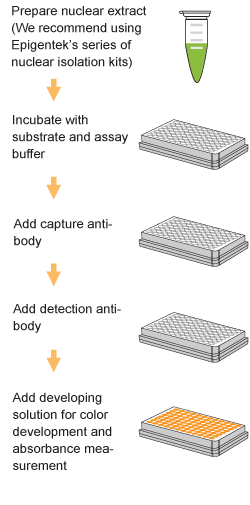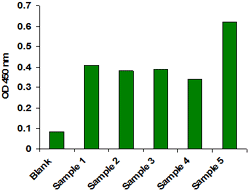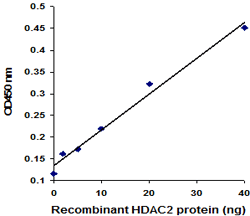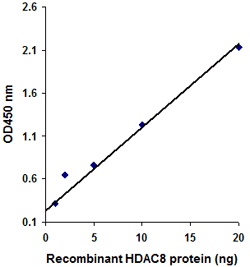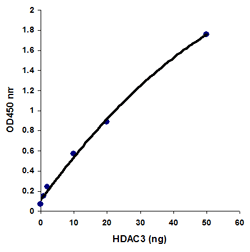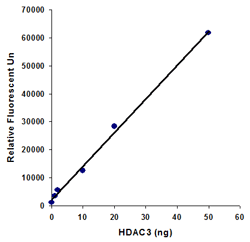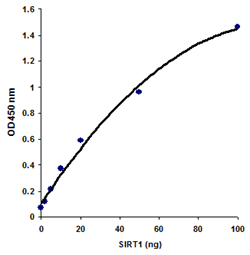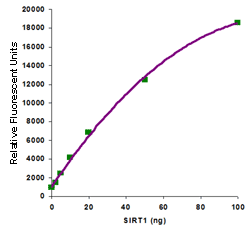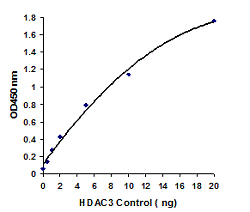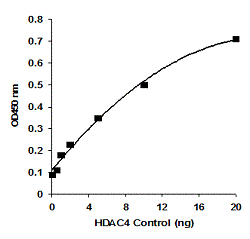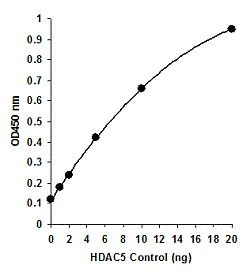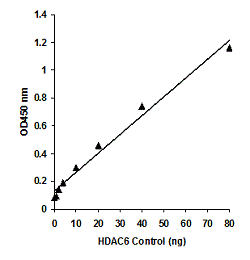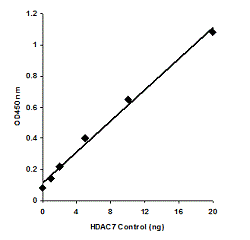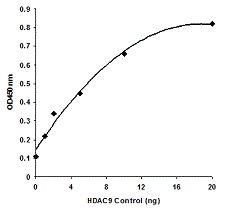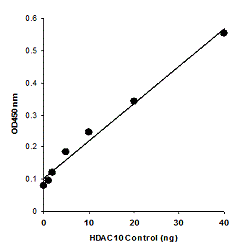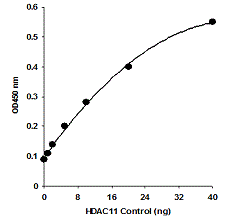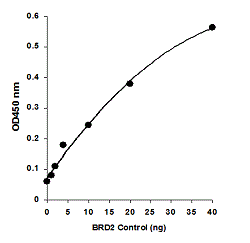Epigenase™ histone deacetylase assays are ELISA-based methods for measuring the total activity/inhibition of HDACs or SIRTs from both purified enzyme and nuclear extract samples.
The Epigenase™ technology allows for direct detection of enzyme-converted deacetylated products rather than trypsin-based peptide cleavage, thus eliminating assay interference caused by DMSO and thiol-containing chemicals, trypsin, and cellular lysyl endopeptidases.
EpigenTek delivers all-in-one resources to support and streamline your histone deacetylase studies:
- Explore the Basics: Learn the fundamentals of Histone Deacetylase Assay
- Additional Resources: Explore our detailed overview and supporting materials
- Technical Hub: Find FAQs, troubleshooting solutions, and optimization guides in our centralized support center




 Cart (0)
Cart (0)




